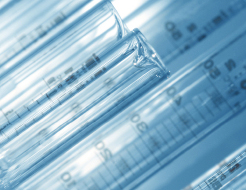About Immunology
 When part of the immune system is either absent or not functioning properly, it can result in an immune deficiency disease. When the cause of this deficiency is hereditary or genetic, it is called a primary immunodeficiency disease (PIDD). Researchers have identified more than 150 different kinds of PIDD.
When part of the immune system is either absent or not functioning properly, it can result in an immune deficiency disease. When the cause of this deficiency is hereditary or genetic, it is called a primary immunodeficiency disease (PIDD). Researchers have identified more than 150 different kinds of PIDD.
The immune system is composed of white blood cells. These cells are made in the bone marrow and travel through the bloodstream and lymph nodes. They protect and defend against attacks by "foreign" invaders such as germs, bacteria and fungi.
In the most common PIDDs, different forms of these cells are missing. This creates a pattern of repeated infections, severe infections and/or infections that are unusually hard to cure. These infections may attack the skin, respiratory system, the ears, the brain or spinal cord, or in the urinary or gastrointestinal tracts.
In some instances, PIDD targets specific and/or multiple organs, glands, cells and tissues. For example, heart defects are present in some PIDDs. Other PIDDs alter facial features, some stunt normal growth and still others are connected to autoimmune disorders such as rheumatoid arthritis.
what we offer
- Recurrent, unusual or difficult to treat infections
- Poor growth or loss of weight
- Recurrent pneumonia, ear infections or sinusitis
- Multiple courses of antibiotics or IV antibiotics necessary to clear infections
- Recurrent deep abscesses of the organs or skin
- A family history of PIDD
- Swollen lymph glands or an enlarged spleen
- Autoimmune disease
If you or your child has symptoms of these sometimes critical conditions, you want the best care available. An allergist / immunologist or a clinical immunologist has specialized training and expertise to accurately diagnose and coordinate a treatment plan for PIDD.
We do evaluations of immune function to a limited extent and we recommend that you see a clinical immunologist for a more thorough or extensive evaluation and treatment of immunodeficiency.